
Shrubs Around Las Vegas, Vegetation Around Las Vegas
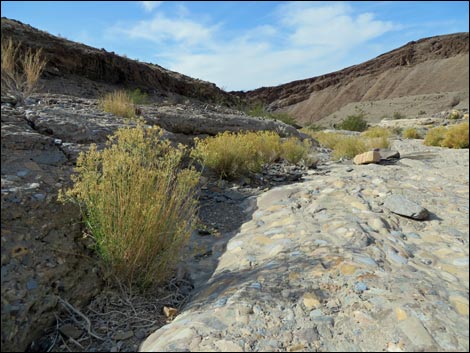 |
General: Matchweed (Gutierrezia sarothrae), also called Broom Snakeweed, is common, low-growing (to 2 feet) shrub that grows from a central stem with many upright branches. The base of the branches is densely covered with tiny, linear, dark-green leaves that grow in bunches. The ends of the branches have a few, thread-like leaves. Each branch ends with a cluster of flowerheads with tiny yellow flowers that bloom in summer and fall. Each tiny flowerhead is made up of 2-8 petals (ray flowers) and 2-9 disk flowers. The involucres are flaring to bell-shaped. With the dense base and open tops, the plant looks like a whisk broom. Matchweed is a common component of shrub communities along washes and on bajadas and slopes in the Upper Sonoran (Mojave Desert Scrub and Pinyon-Juniper Woodland) life zones, especially in disturbed areas along roadways. Matchweed also occurs in the Transition (Yellow Pine Forest), Canadian (Pine-Fir Forest), and Hudsonian (Bristlecone Forest) life zones. Around Las Vegas, look for this species along roadsides in desert areas. It is very common along roads and disturbed areas in Red Rock Canyon NCA, especially along Highway 159. |
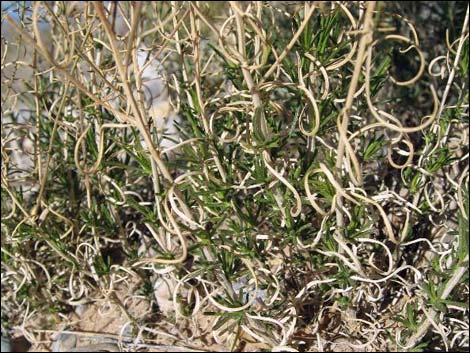 Long, narrow leaves at the base of the plant |
Family: Sunflower (Asteraceae). Other Names: Snakeweed, Matchweed. Plant Form: Short, upright shrub. Height: To about 2 feet. Bark: Brown at the base, straw at the tips. Stems: Upright, branching towards the tip into flowerheads. Leaves: Basal leaves in axillary clusters, entire, short, thin; upper leaves single, long, and thin. Flowers: Blooms in summer and fall. Inflorescence a group of up to 15 flowerheads. About 2-8 ray flowers, and 2-9 disk flowers in each head. Flowers tiny (to about 2/10s inch), yellow. |
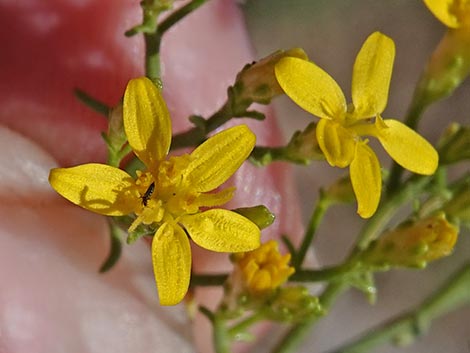 |
Seeds: Tiny achene (like a tiny sunflower seed) with hairs. Habitat: Dry, well-drained sandy, gravelly, and rocky soils along washes and on bajadas and mountain slopes. This native species is weedy, growing well along roadsides and disturbed areas. Elevation: Most common at 3,000 to 5,000 feet; to about 9,500 feet. Distribution: California to south-central Canada, the central U.S. and south into northern Mexico. Comments: This species looks similar to Sticky Snakeweed (Gutierrezia microcephala), however, there are only 2 petals (ray flowers) on Sticky Snakeweed flowers, while there are more than 2 (often five) in Broom Snakeweed. |
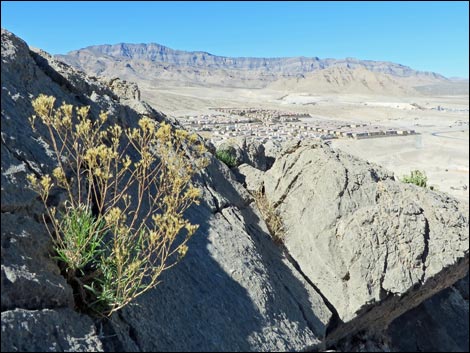 |
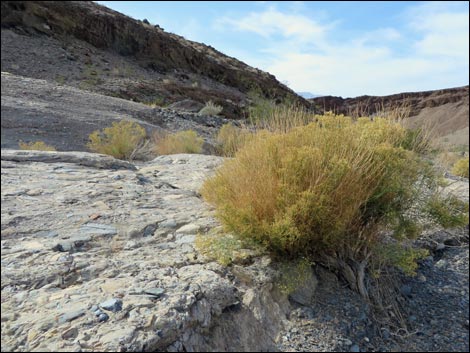 |
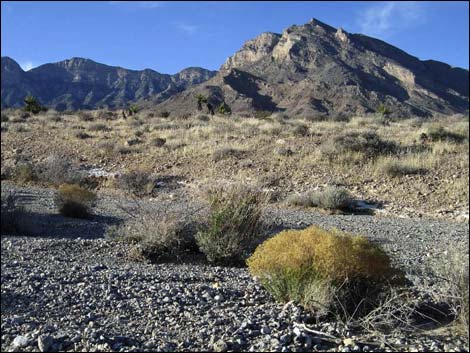 Matchweed (green shrubs) growing in a wash |
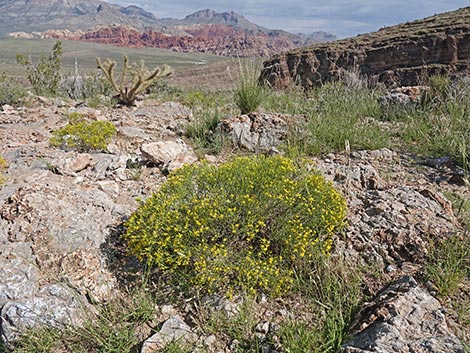 Matchweed growing in rocks |
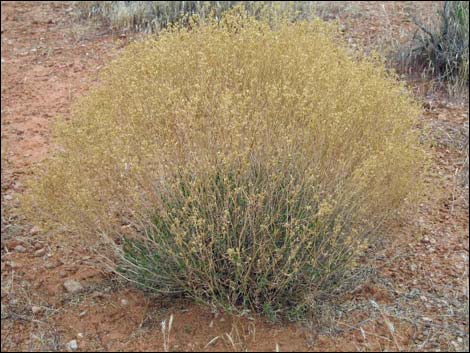 |
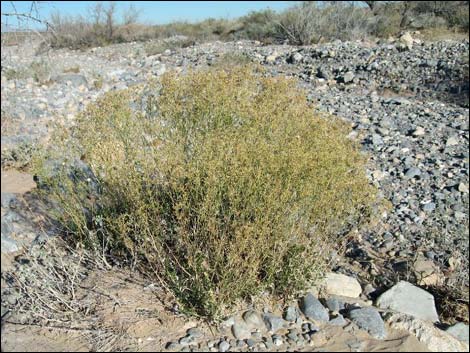 |
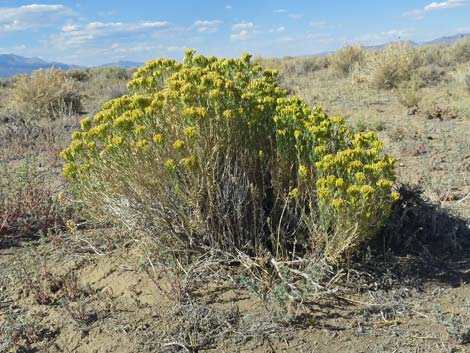 |
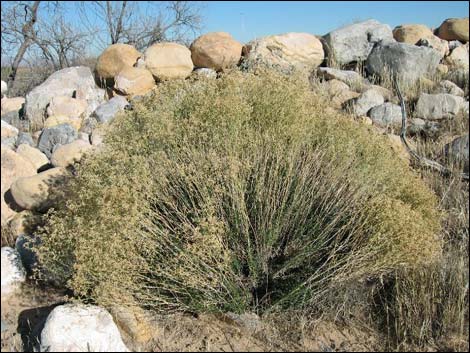 |
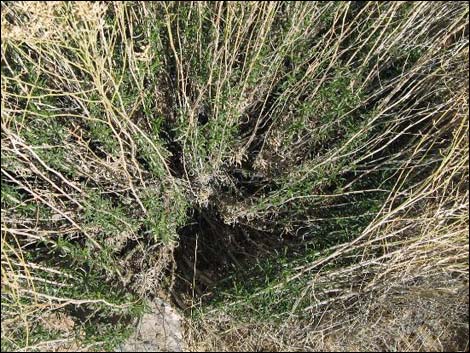 Dense leaves at the base of the plant |
 Long, narrow leaves at the base of the plant |
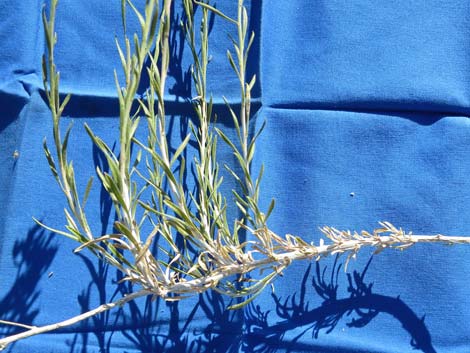 Lower and upper leaves |
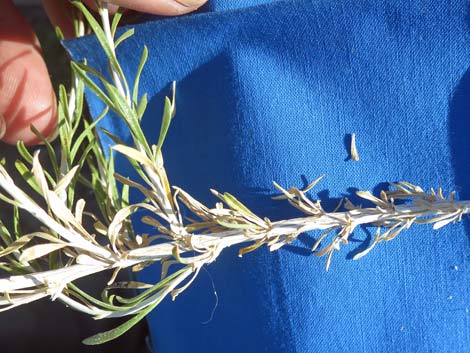 Lower and upper leaves |
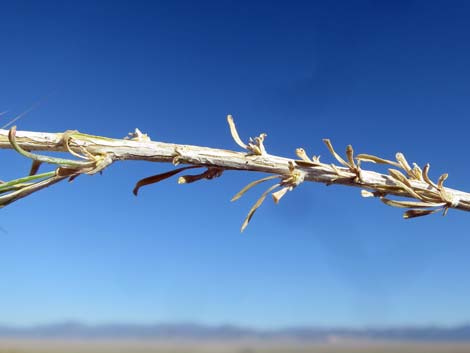 Lower leaves grow in bunches (fasciculated) |
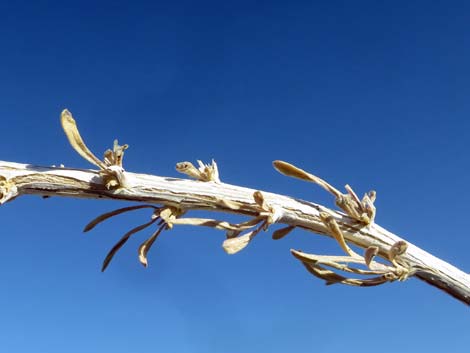 Lower leaves grow in bunches (fasciculated) |
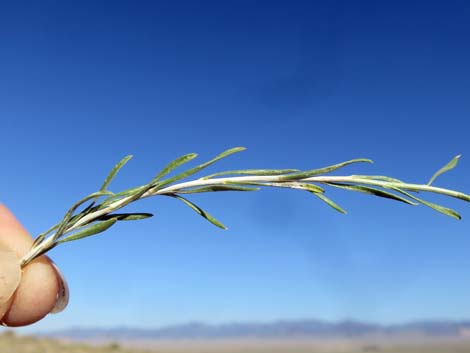 Upper leaves grow singly from the stem |
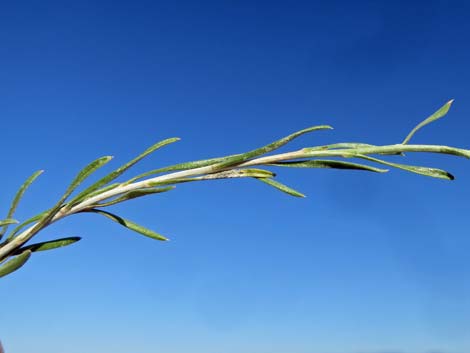 Upper leaves grow singly from the stem |
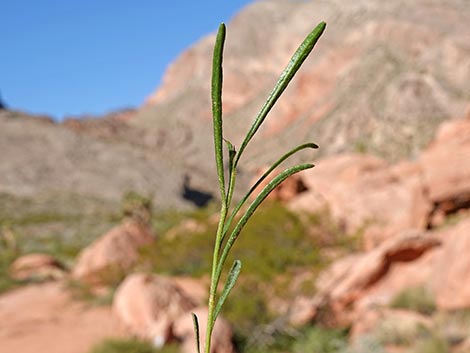 Upper leaves |
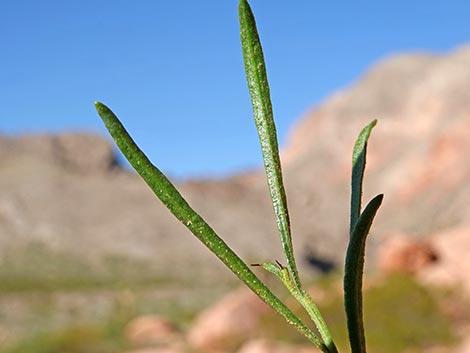 Upper leaves |
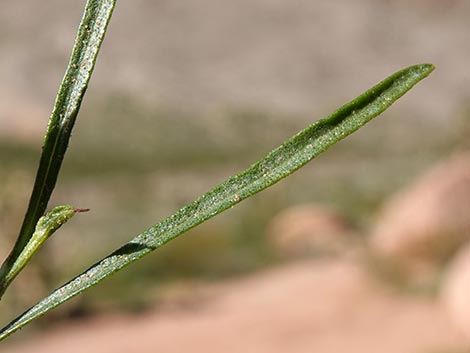 Upper leaves (dorsal surface) |
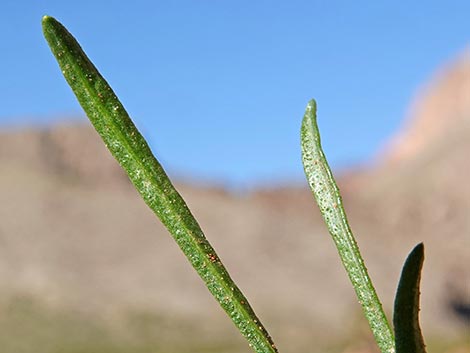 Upper leaves (ventral surface) |
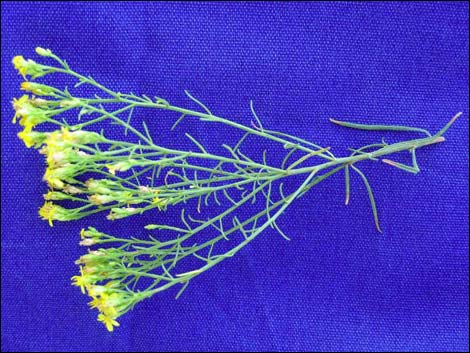 Flowerheads clustered at stem tips |
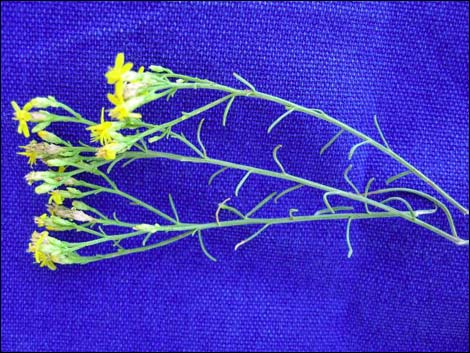 Flowerheads clustered at stem tips |
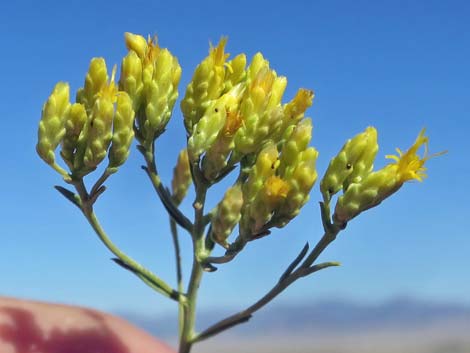 Flowerhead |
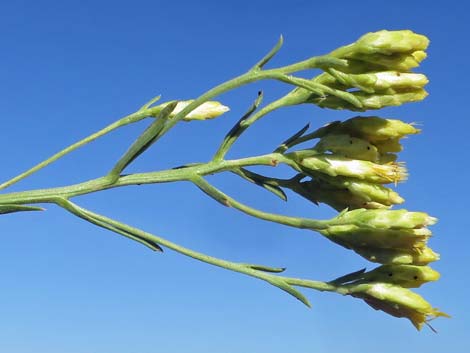 Flowerhead |
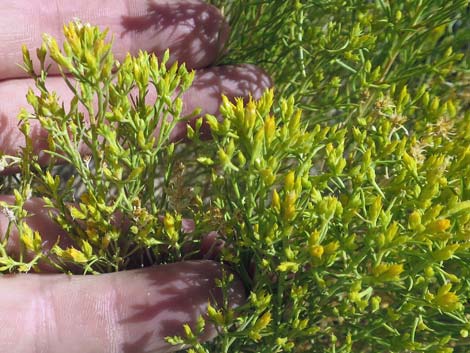 |
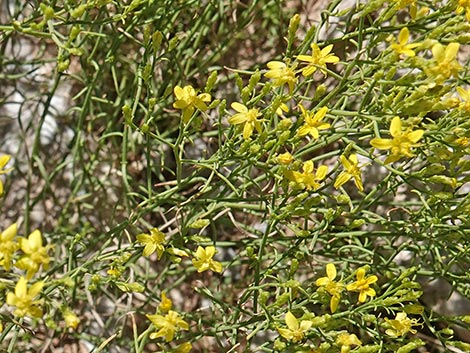 |
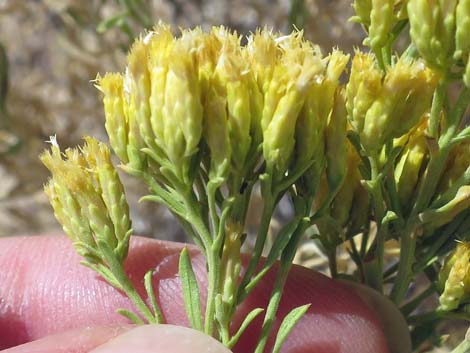 |
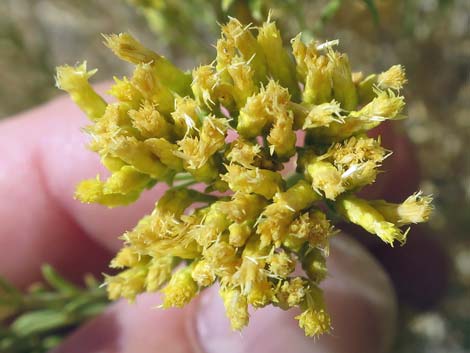 |
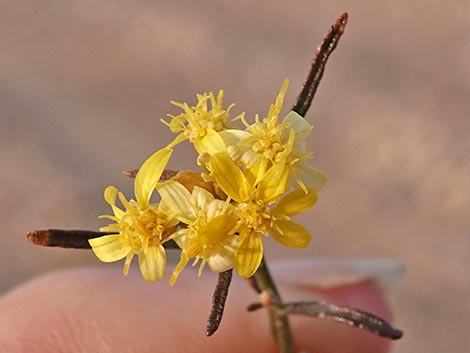 |
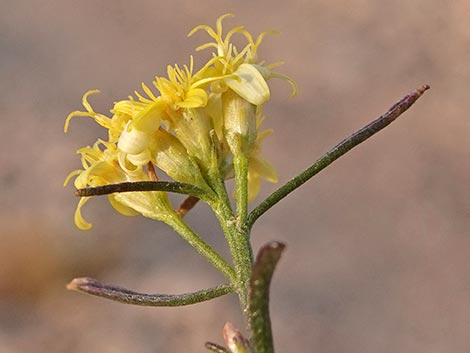 |
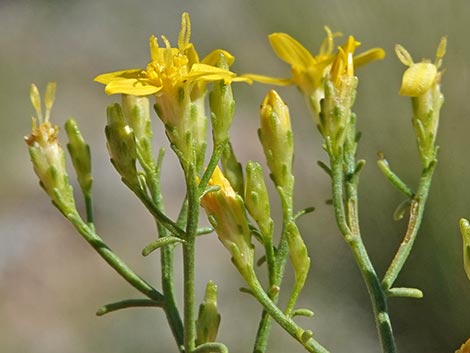 |
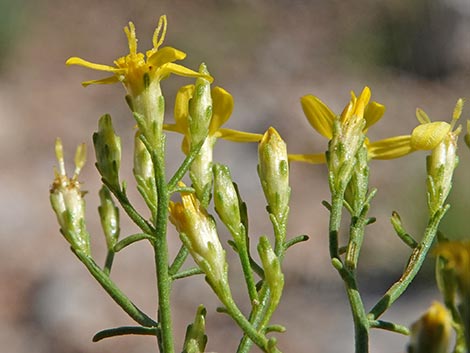 |
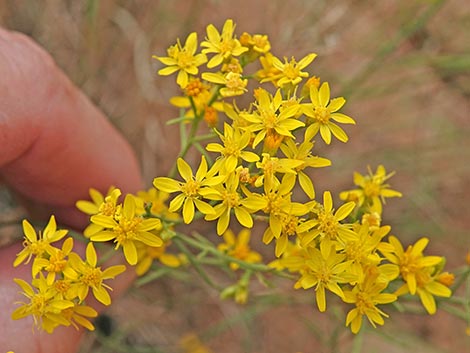 |
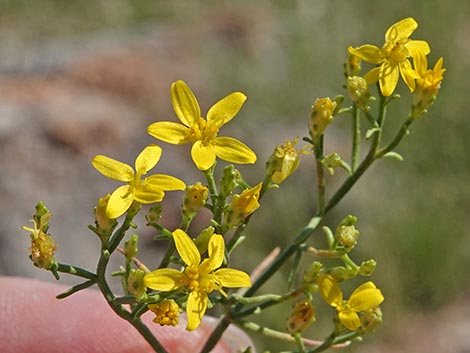 |
 |
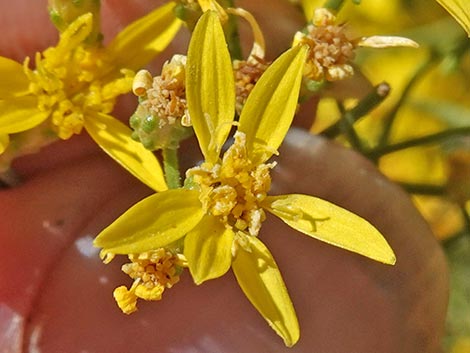 |
Note: All distances, elevations, and other facts are approximate. Names generally follow the USDA database.
![]() ; Last updated 240628
; Last updated 240628
| All Shrubs | Plant Species Index | Glossary | Copyright, Conditions, Disclaimer | Home |